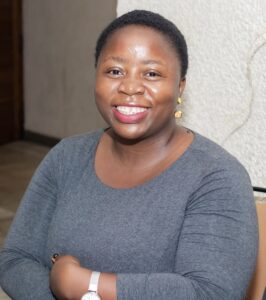It was my second time watching The Throne, yet this play’s magic took hold of me like it did the first time. Written by one of Sierra Leone’s finest minds Oumar Farouk Sesay and acted by the University of Sierra Leone Theatre group led by Dr. Fatu Taqi, this play is a gem in modern African literature.
As a feminist, I must commend its stance on misogyny, a strong female protagonist and its
highlight of the abuses faced by the LGBTQIA+ community. The good people, traditions, and songs this fictional world gave were all beautiful. If I were asked to rate it, I’d give it five stars over and over again.
Their story centered on the near impossibility of women getting leadership due to our cultures and, as such, couldn’t deliberate on gay rights issues.
Nonetheless, like feminists of color often say of white feminists, Bura, the lead female protagonist and the princess, had influence. She could have rallied her family and supporters to stand up against the elders as they sought to deny her gay brother’s right to the throne.
Yet, as I recollected the night before, the feminist I am, saw an intersectionality problem. As in the play, this problem is everywhere, where two or more minorities demand their rights. This is why for instance, Black people call out Asian people for being silent when police murder them in the US. Also, it is why feminists of colour call out white female feminists as not being true to all of their problems. We also have black women asking black men to go easy on them.
Intersectionality is a big word. In short, it is the idea that Audre Lorde propounded by stating, “ I am not free while any woman is unfree, even when her shackles are very different from my own”.
That our common problems share the same roots of patriarchy, slavery, colonialism and religion. Power overlaps over ethnicities, class, gender and race( from white men – white women- Asians- black men- black women- other religions- LGBTQIIA+)—each social group enjoying more privilege than before.
You’ll think it is easier for minoritised people to give up the power that they have over other minorities, but in many instances, this isn’t the case.
These minorities also aid in subjugating other minorities. As minorities, we get so lost in defending and asking for our rights that we forget or even ignore other minorities and their rights. We forget that our struggles are intertwined. This is precisely what I saw in Bura, the princess of Norkorba.
I was looking forward to her uniting with her brother against a common enemy that had continuously berated her. I don’t celebrate her victory as much, knowing that she only won because society denied her brother for being gay and that the elders hated him more.
A question of what if the brother was a cis-heterosexual man rather than openly gay, Would Bura have ascended the throne or would the brother have called for democracy as he did? Notwithstanding that, democracy hasn’t worked in women’s favour.
Do we get to celebrate one minority winning over another minority when we can all win? And more questions keep taunting my mind. I can understand why it is easier to watch someone else get hated. It gives one a moment of rest, but that doesn’t mean our suffering has ended, especially when the root of that hate is the same. When our privileges are different and more than other minorities, it doesn’t and won’t stop our own oppression.
We can’t continue to scream for women’s rights and ignore that gay men can be jailed for life in Sierra Leone. We can’t only demand an end to racism when women are still second-class citizens in most parts of the world. Sierra Leonean feminists cannot continue to watch LGBTQ people live in constant fear and disrespected by the general society, with us included.
I know we are on a journey, and it may take time to fight for others as we continue to fight for ourselves. Someday soon, I hope we can all fight for everybody’s rights. And yes, I recommend you watch the throne the next time it is on.

Massah Esther Nyally Bockarie is a feminist stroyteller from Sierra Leone. She currently works at Purposeful, where she helps make the world with and for girls. Follow her on Twitter : @massah_bockarie
